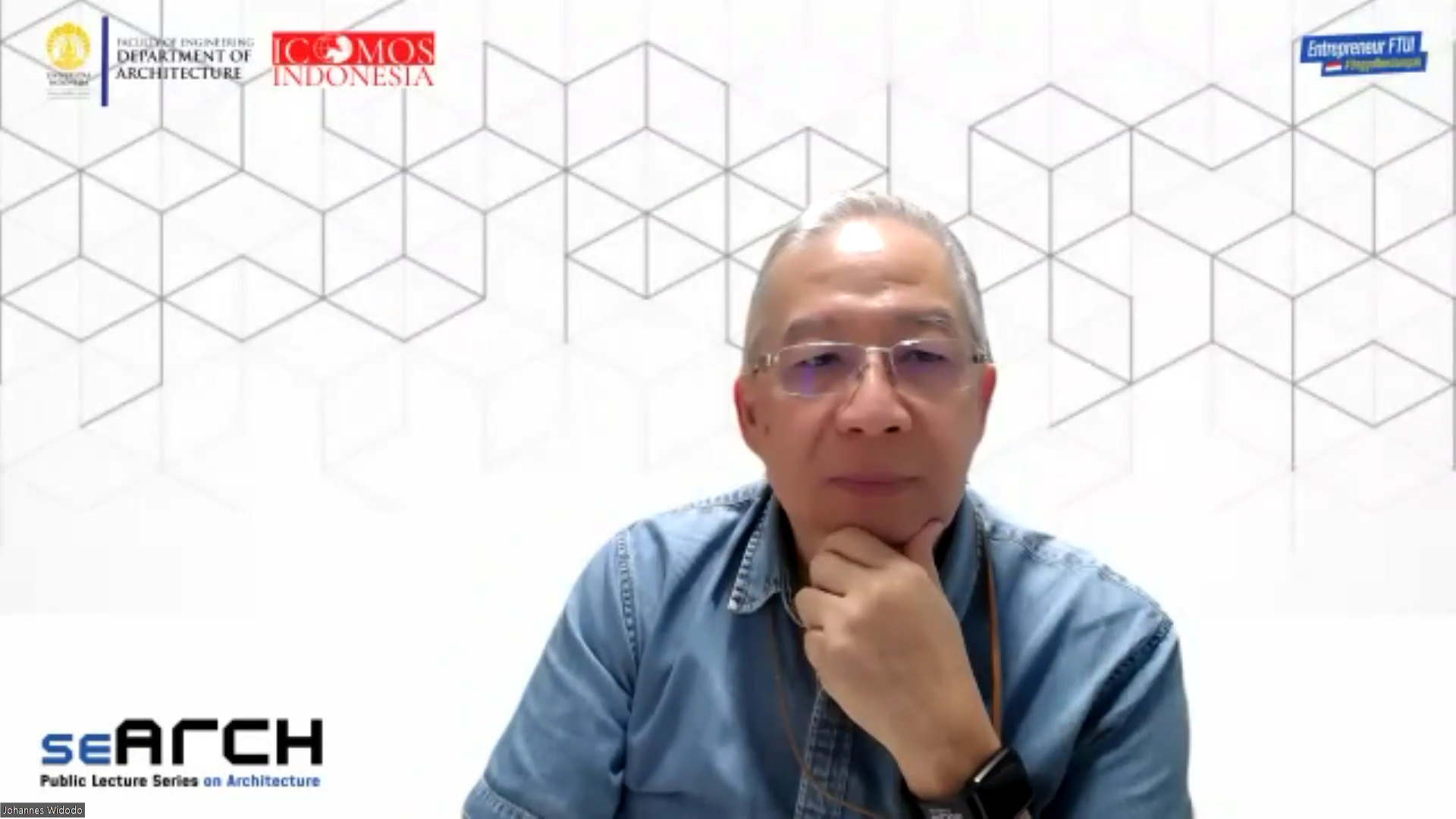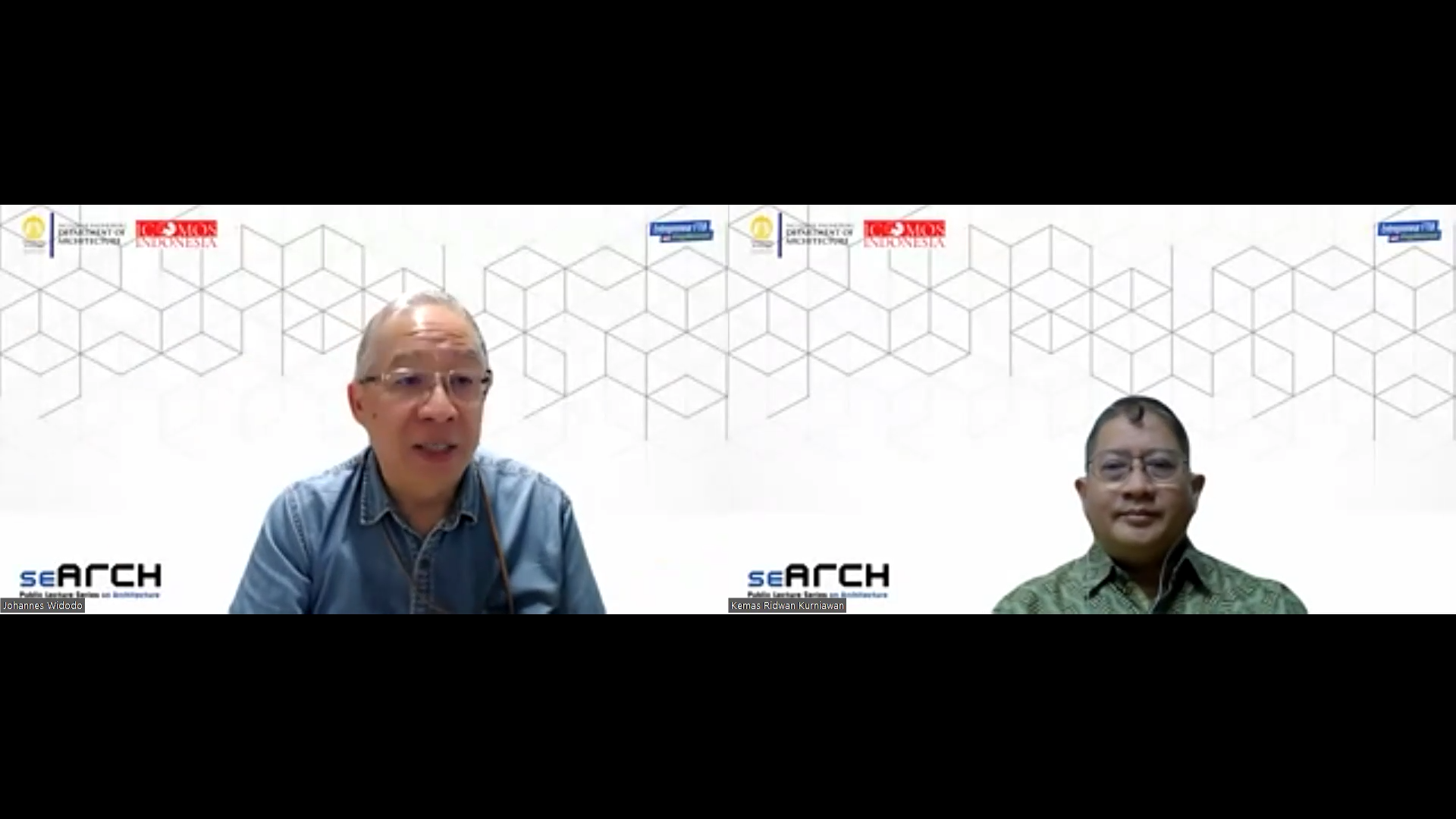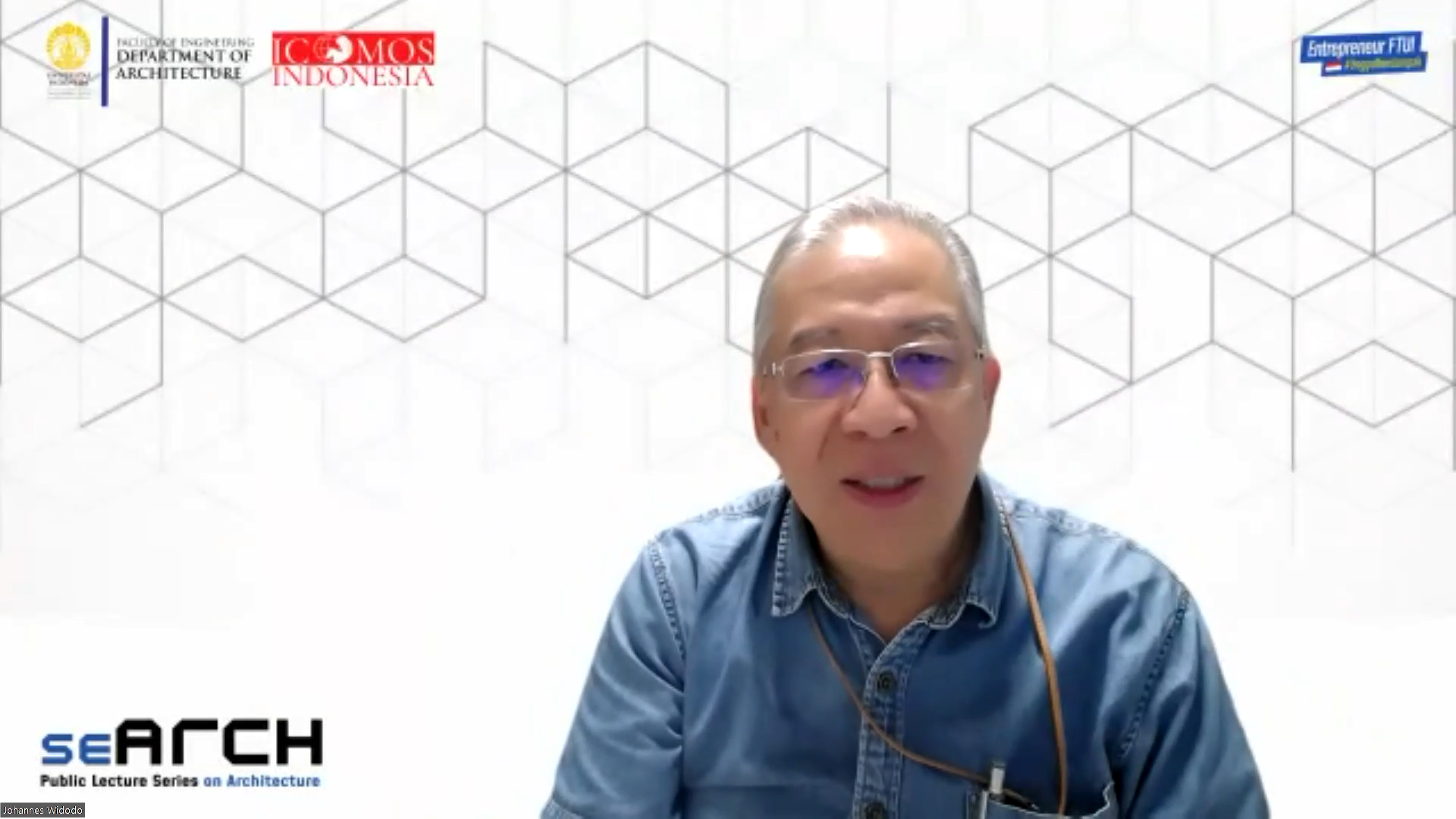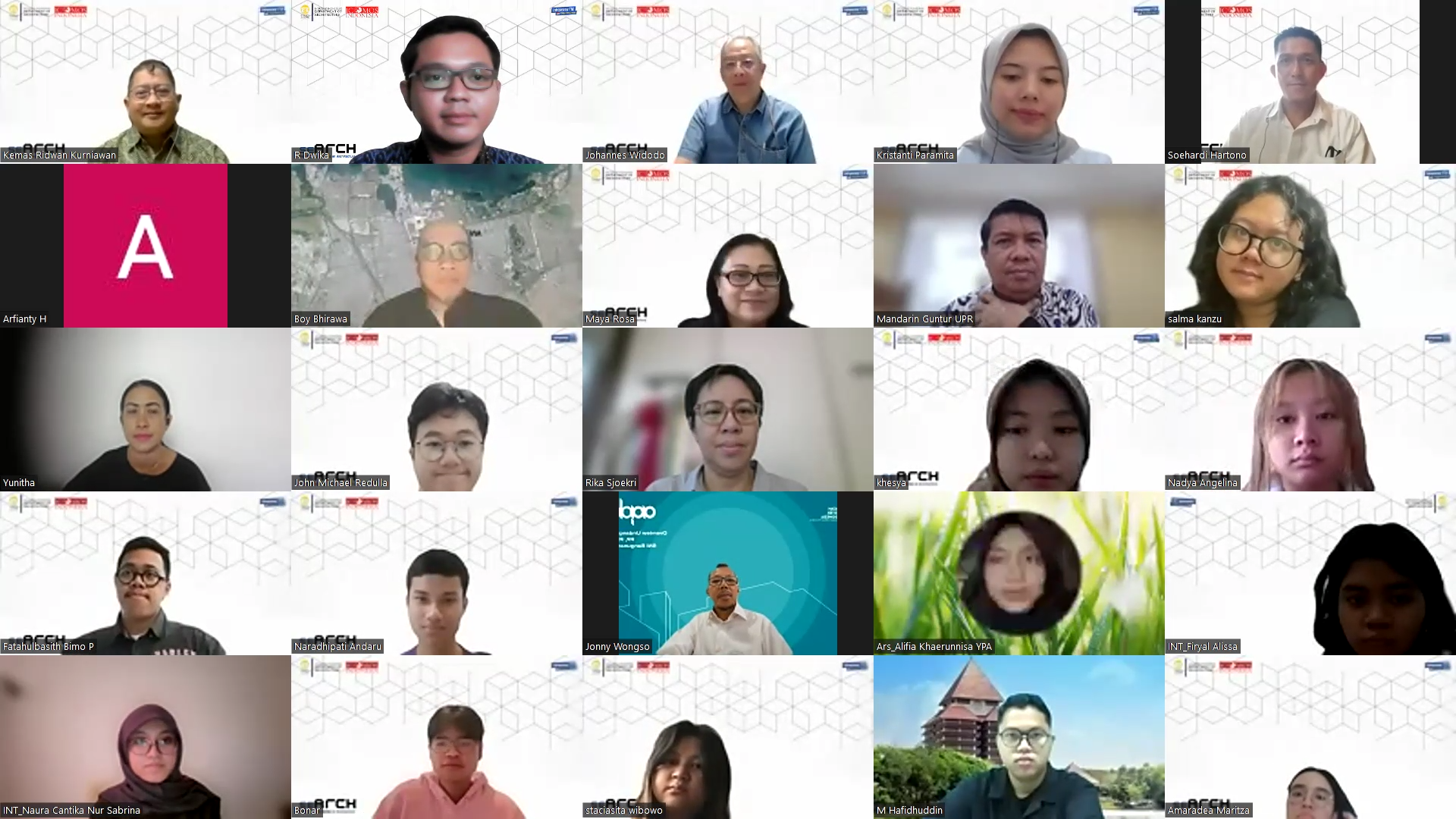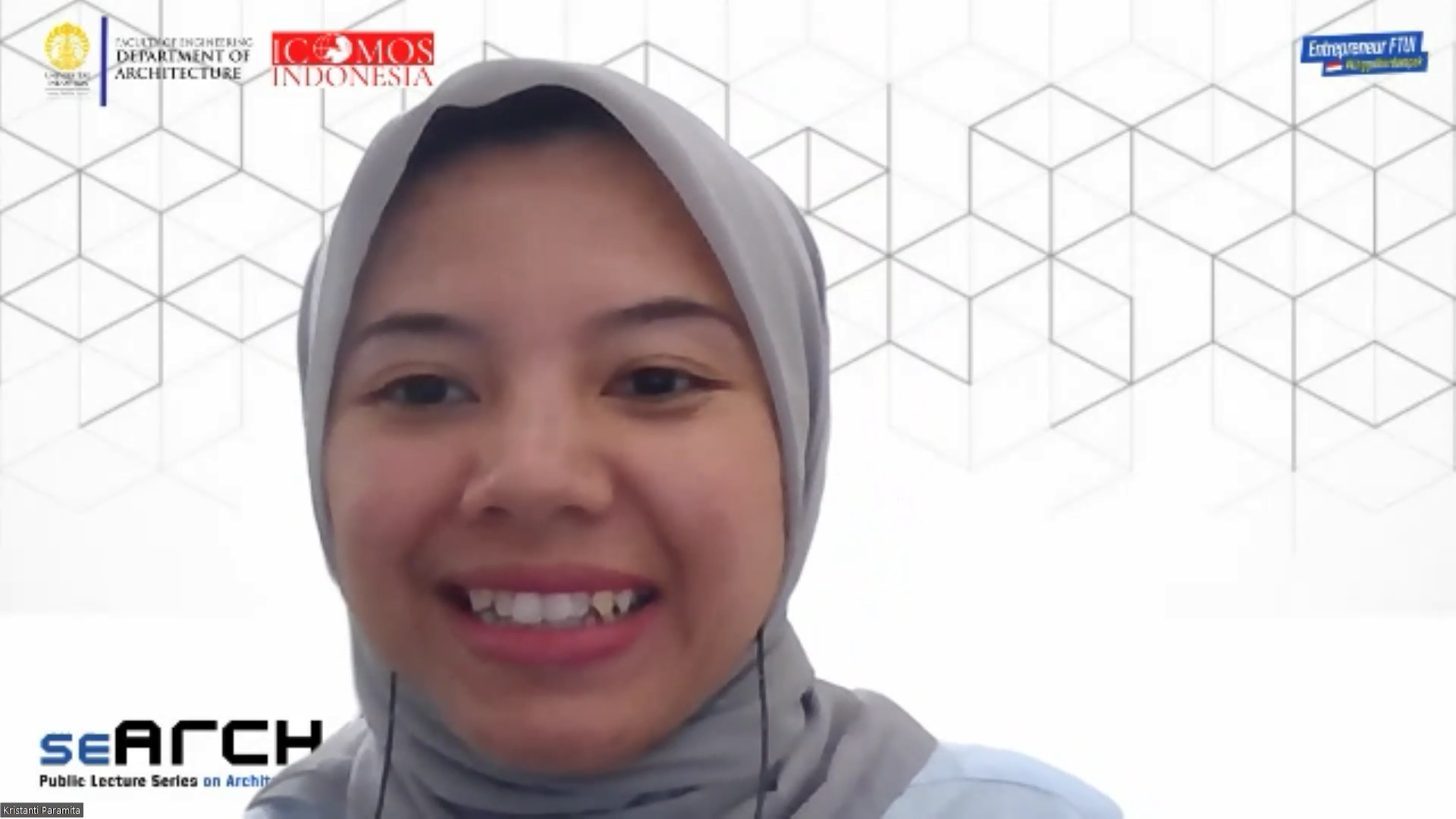On Tuesday (18/04), the Department of Architecture, Universitas Indonesia, once again organized a public lecture as part of the seARCH (Public Lecture Series on Architecture). This time, the guest lecture invited Associate Prof. Johannes Widodo from the National University of Singapore, with the theme “Heritage in Motion: Placemaking for The Future”, held online via Zoom Meeting.
Kristanti Dewi Paramita, S.Ars., M.A., Ph.D., Secretary of the Department of Architecture at FTUI, expressed in her opening remarks, “This seARCH series is special as part of the World Heritage Day celebration. The Department of Architecture, FTUI, collaborated with ICOMOS Indonesia in organizing today’s guest lecture. I hope that the collaboration between the Department of Architecture, FTUI, and ICOMOS Indonesia, as well as the speakers, will not be limited to just this session, but will continue more deeply in the future.”
“We are very grateful because the Department of Architecture, FTUI, has invited ICOMOS Indonesia to collaborate in today’s guest lecture. ICOMOS, as a global non-governmental organization advocating for the implementation of world-standard conservation techniques and principles, certainly hopes that in the future ICOMOS Indonesia can forge a stronger collaboration with the Department of Architecture, FTUI, to advance conservation activities in Indonesia, especially to achieve sustainable development goals and the welfare of the people,” said Soehardi Hartono, President of ICOMOS Indonesia.
This guest lecture aims to rekindle the discourse on the importance of conservation, which intertwines environmental sustainability, economic viability, and socio-cultural continuity. In current preservation efforts, we are not only talking about monuments or buildings in physical terms but always about intangible heritage aspects, discussing sustainable development.
Associate Prof. Johannes Widodo in his lecture explained that the term “heritage” is often misunderstood as something aesthetic. Essentially, heritage is cultural inheritance passed down from the past to the present generation and then handed over to future generations.
“So, the importance of efforts to preserve or continue the cultural heritage built by previous generations is essential to ensure its existence for future generations. Because, in any case, cultural heritage is one of a nation’s identities. Adaptation is important in conservation discourse because conservation is not just restoration, repairing the old but also adapting it to new conditions, to save the physical assets of a building,” he explained.
Conserving heritage buildings poses a challenge in preserving a nation’s culture. In today’s digital transformation era, architects can utilize digital technology as a supporting tool for the conservation efforts of historical buildings.
“For example, the use of heritage beams to calculate the value of a building, that the building to be conserved economically benefits, is worthy of preservation and revival. In addition, we can also simulate new forms of a building to be conserved by creating studio models, and mockups using digital twins, so that we can see comprehensive simulations. This is a strength for our current generation that was not possessed by architects of previous generations,” Johannes continued.
In conclusion, city buildings, as well as historical buildings around us, are entrusted to us to be preserved for future generations. In this regard, Associate Prof. Johannes Widodo offers a new paradigm to redefine heritage with an inheritance paradigm, which is to save historical buildings to be adapted to current lifestyles with the help of politics, community movements, and also support from experts. This can stimulate the continuity of inheritance for the future, not only focusing on beautification (visual improvement process) but also having positive impacts on the environment and socio-economy.
On a separate occasion, the Dean of FTUI, Prof. Dr. Ir. Heri Hermansyah, S.T., M.Eng., IPU, expressed, “I hope that through the guest lecture delivered by Associate Prof. Johannes Widodo, we can increase our awareness of the importance of preserving the existence of buildings and urban areas with historical value. Hopefully, this learning will encourage more participation in Indonesia’s preservation activities in sustainable development.”
Johannes Widodo is one of the founders of ICOMOS Indonesia. He is also a lecturer, and associate professor in the Department of Architecture, School of Design and Environment, National University of Singapore, focusing his research on the history, theory, and criticism of architecture. In line with his interests, he currently serves as the Director of the Tun Tan Cheng Lock Centre for Asian Architectural and Urban Heritage in Melaka and the Executive Editor of JSEAA. In addition, he is also involved in various conservation organizations and activities, such as being a member of the Singapore Institute of Architecture (SIA) Association, and the founder of the modern Asian Architecture Network.
***
Public Communication Office
Faculty of Engineering, Universitas Indonesia

